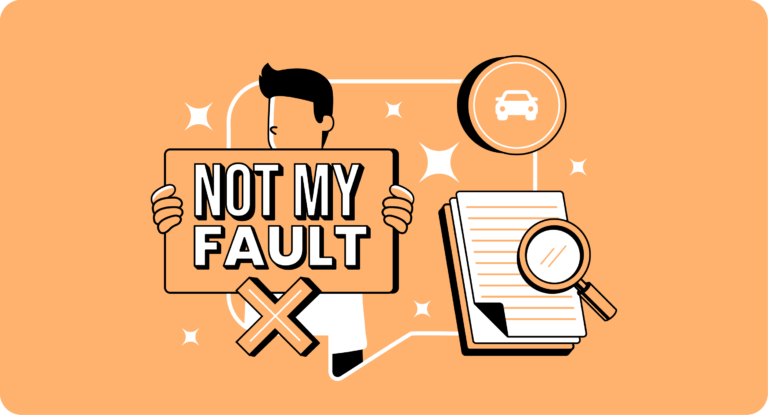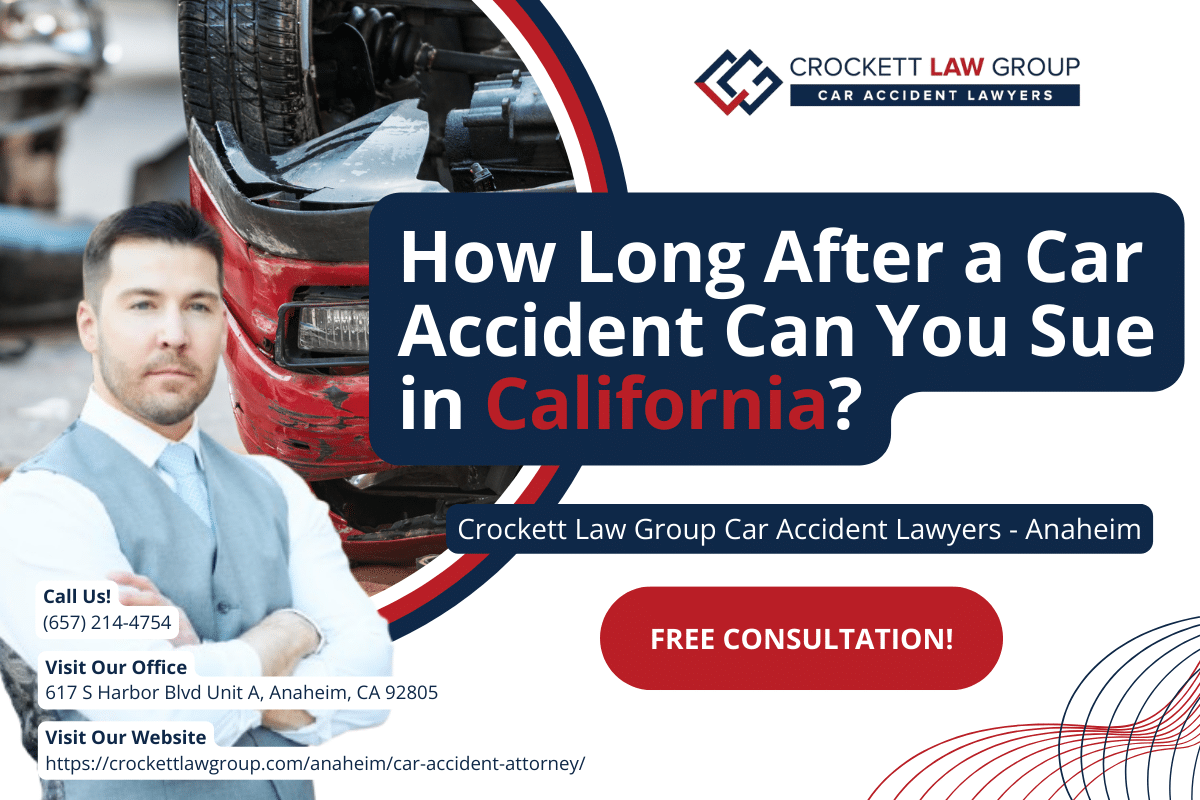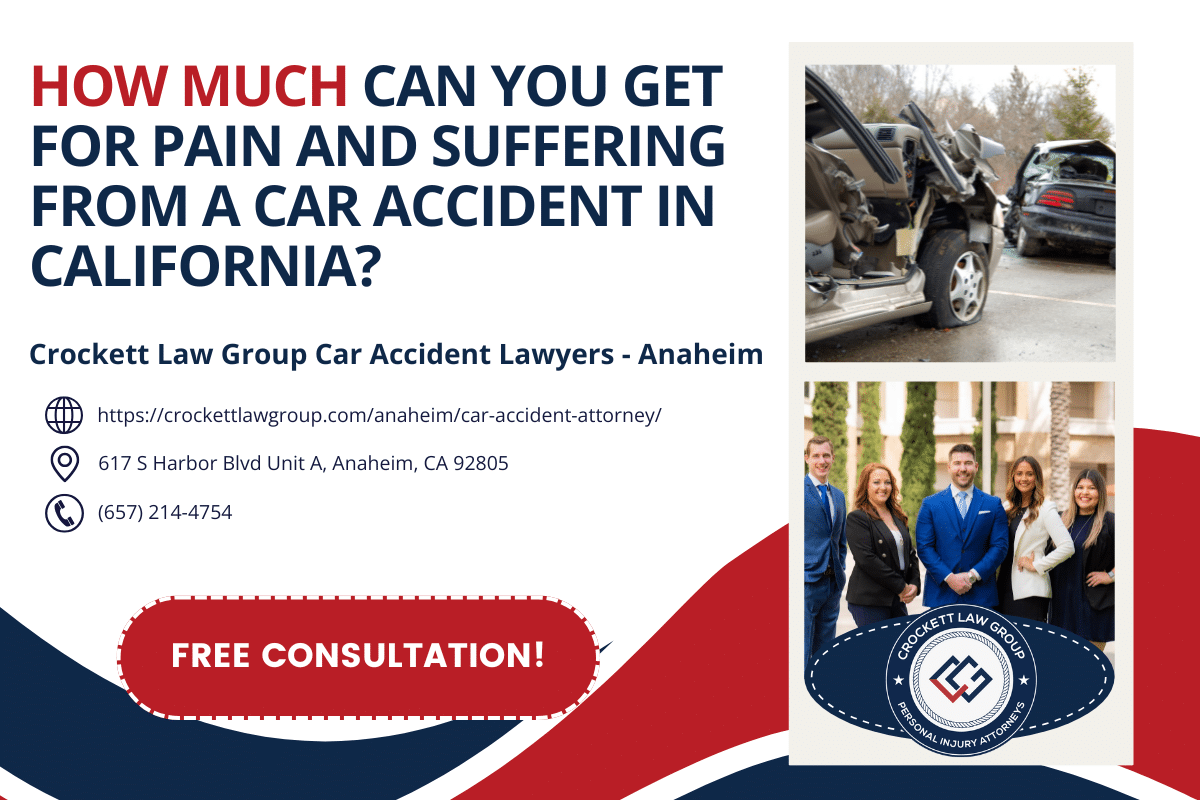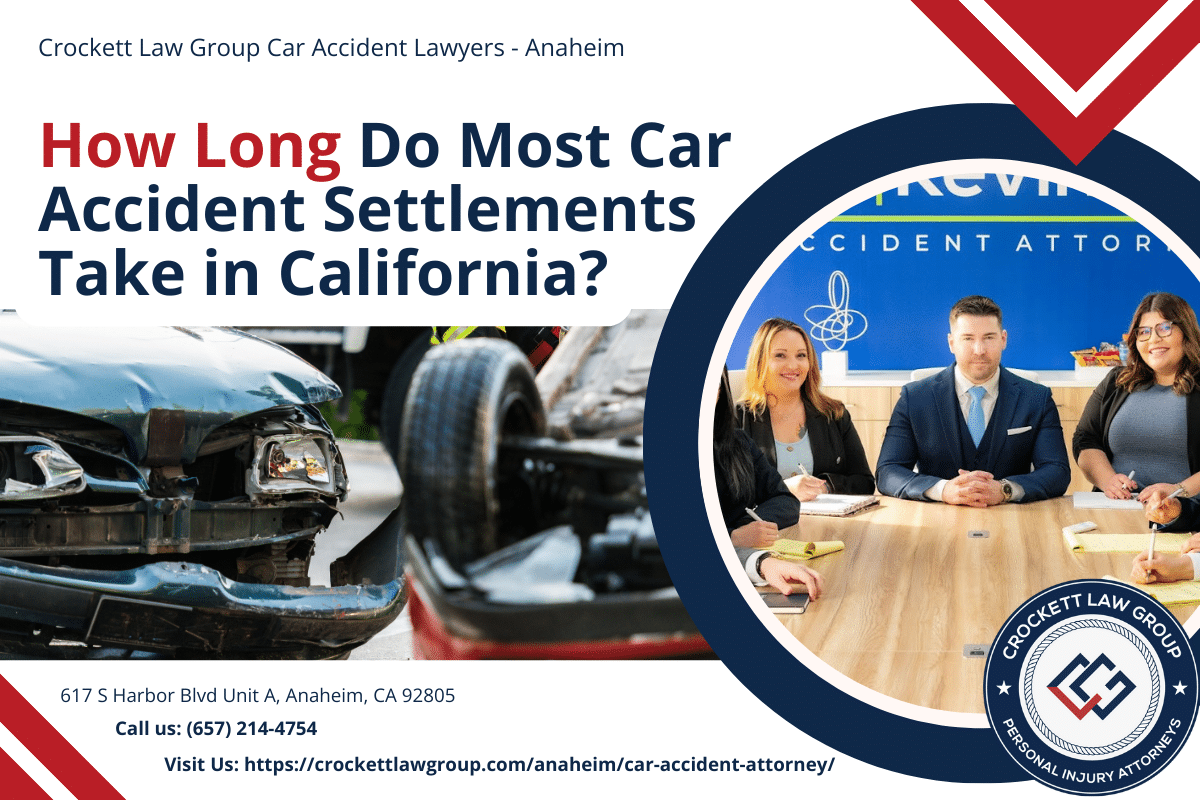Gathering evidence, such as statements from eyewitnesses, expert testimony, and more, can help you avoid accepting fault for a car accident.
When you are involved in a car accident in California, you may feel that the fault for your case is clear-cut. The other driver may have been careless, leading to your injuries. However, you may be shocked to find that they have tried to place the blame on you instead, and if you accept that blame, your compensation may be reduced or dismissed.
When this happens, proving you are not at fault in a car accident is vital. Accepting fault can diminish the value of your case or even leave you paying out of pocket for another person’s expenses. At Crockett Law Group, we work hard to navigate fault and help our clients get the answers they need when another party has accused them of causing an accident.
How Do Accusations of Fault Impact Your California Car Crash?
Remember that California is a fault state when you are involved in a car accident, according to California Civil Code 1714. Fault states place the financial responsibility of a car crash on the party who caused the accident. That means the car accident injury victim can either pursue a third-party claim with the at-fault party’s liability insurance or file a lawsuit against the negligent party.
However, the at-fault party may be unwilling to take this step and compensate you for your suffering. In fact, they may do everything in their power to avoid doing so, protecting their own financial well-being at the expense of yours. Unfortunately, accepting any part of the fault can leave you stuck with high expenses and damages you may need help paying.
Rather than accepting fault and paying out of pocket for your recovery, keep in mind that you can still take action, even if the other party tries to avoid paying out for your case. We offer legal support to help you identify who is at fault in these cases, gather evidence that shows you are not at fault, and navigate your case in court. If you are struggling to protect your rights to compensation, do not hesitate to reach out.
Steps You Can Take to Prove You Are Not At Fault in A Car Accident
When you are accused of being partially or totally at fault for your car accident, you may feel lost and frustrated when trying to prove this is not true. You may be unsure where to turn or what to say in the wake of the accident. Fortunately, there are steps that you can take to help prove you are not at fault, which are listed below.
Gather Eyewitness Accounts
In some cases, multiple people may have witnessed the accident. While witness testimony can sometimes be contradictory, others who witnessed the accident may have noted that the other party was acting carelessly. That testimony can work in your favor when trying to prove you are not at fault for the accident.
At the scene of the accident, be sure to exchange contact information with any eyewitnesses. If you have the opportunity to contact these witnesses, we can speak with them about testifying on your behalf to help prove you were not responsible for the accident. They can talk about not just that you did not cause the accident but also who or what caused it.
Utilize an Expert Witness
In some cases, you may not have had eyewitnesses or need more in-depth evidence. In these situations, calling on an expert witness to testify on your behalf can help you build a stronger case to your benefit. Expert witnesses provide information specific to their field, which can be used to your advantage in the courtroom.
For example, if there were no other witnesses to your accident, you may need an accident reconstruction expert to show the exact events of your crash. These experts can look at the aftermath of your accident and retrace the steps to determine what caused the crash. In situations where someone is trying to blame you for the accident, showing information like this can help protect your claim.
Get a Copy of Your Car Accident Police Report
As you navigate your accident claim, you may have use of your car accident police report. These reports must be made within 10 days of an accident resulting in injury or over $1,000 in damages under Vehicle Code Section 16000, though it should be done as soon as possible. These accident reports detail what happened, who was involved, and how it happened, which can be used to your advantage for your case.
When you have a copy of your car accident police report on hand, you have a clear version of the events of your crash. While other evidence may be of more use in the courtroom, this statement from the police can help solidify that you were not at fault for your accident. Having this document can provide a clear, unbiased view of your car crash.
Check Your Local Traffic Laws
You may sometimes believe the accident happened because another party disobeyed local traffic laws. For example, they may have been speeding, which is not only against the law under California Vehicle Code Section 22350 but also extremely dangerous. According to the National Highway Traffic Safety Administration (NHTSA), 12,151 people were killed in accidents involving speeding in 2022 alone, and around 29% of fatal accidents happen because of speeding.
If you have evidence that you were following local traffic laws but another driver was not, you may have more evidence that shows you were not at fault for the accident. Proving you were following the rules also demonstrates that you were not acting negligently in the moments before the crash, which can help you avoid accusations of fault during this difficult time.
Never Admit Fault
As you navigate your case, one of the simplest but most important things to remember is that you never have to admit fault for the accident. Even if you are unsure who was responsible for your injuries, admitting fault can lead to serious consequences, including losing part or all of your compensation. Because of this, we may need to review many conversations with the insurance company or other parties before continuing.
This is especially important when discussing your accident with the insurance company. Your insurance company is a for-profit business, meaning that it is in its best interests to pay as little as possible for your recovery. That can mean using anything you say or do after the accident to diminish or deny your claim.
However, taking care to say as little as possible about the accident can give them less opportunity to take action. We can help you handle these conversations by speaking on your behalf and providing evidence that you were not at fault. Simply avoiding giving them grounds to blame you can help.
Pro Tip
Gathering sound evidence that the other party, not you, caused the accident is crucial to this process. However, do not forget that California has shared fault laws under California Civil Code 1714, so be sure you are doing all you can to disprove your own fault.
You May Be Due Compensation if You Are Not At Fault in A Car Accident
Beyond proving that you were not responsible for the accident, you must also prove that the at-fault party is responsible for your damages. That begins by understanding the value of your damages, both compensatory and punitive. Understanding the value of these damages can help ensure you’d never settle for less, which could leave you paying out of pocket if you do so.
Economic Damages
When you have suffered catastrophic injuries like traumatic brain injuries, spinal cord damage, and burns, the cause of your recovery can be high. In these cases, you may be due compensation for your economic damages, which covers the financial losses you have suffered following your crash. We can help you identify the specific value of your case and pursue compensation for past and future expenses.
Non-economic Damages
Beyond your financial losses, you may have also suffered mental and emotional costs that impact your quality of life. These are called non-economic damages and cover the many types of pain and suffering you have experienced. However, these damages are intangible, so you may need our help navigating the specific value of your case.
Punitive Damages
When someone is grossly negligent regarding your safety or intends to injure you, you may have grounds for punitive damages under California Civil Code Section 3294. These damages do not compensate for specific losses but instead punish the wrongdoer for the damage they caused. These damages are meant to deter future behavior like this, so contact us if you believe you may be eligible.
Note
Not every claim is eligible for punitive damages, and in fact, relatively few are. However, if you believe you qualify for these damages, do not hesitate to contact us to learn more about the damages you may be eligible for.
California Traffic Laws Can Impact How We Navigate Your Claim
As you pursue compensation, you have more concerns and considerations to focus on than accusations of fault alone. Ensuring that you are following state traffic laws is key, and your claim may also be impacted by civil lawsuit rules. Talk to our personal injury lawyers to learn more about the laws that may impact your case and what we can do to help.
Your Statute Of Limitations May Be Running Out
As you pursue compensation for your claim, remember that California has a strict time limit on your case. According to California Civil Code section 335.1, you only have 2 years to follow your claim. If you do not file within this time limit, your claim may be dismissed, leaving you without compensation.
However, your statute of limitations can depend on the specifics of your car accident. For example, if you were injured by a government agency, under California Government Code Section 905, you may only have 6 months to file your initial notice of a claim. If you are filing on behalf of your child, also keep in mind that their time limit will not be reached until they turn 18.
Comparative Fault Can Limit the Value of Your Case
One of the biggest issues you may face as you argue against accusations of fault Is the idea of shared fault, also called comparative negligence, under California’s Civil Code 1714. This law states that if a person contributes through their own negligence to an accident, they may be held partially responsible for the crash. That may not bar you from compensation, but it can reduce your compensation to the point that you are paying out of pocket for your many expenses.
Rather than accepting any fault, you can always turn to Kevin Crockett and the other members of our team. We offer focused, aggressive defenses when the at-fault party tries to place part or all the blame on you. Ensuring that they do not reduce the value of your compensation is crucial to our team.
Reach Out When You Need High-Quality, Aggressive Defense From Our Car Accident Law Firm in Orange County
As you navigate a car accident claim, you may be frustrated and worried because another involved party is trying to blame you. They may be trying to push the blame away from themselves, avoiding paying for the injuries you have suffered. When this happens, if you do not fight back, it can mean significant losses for you.
Fortunately, at Crockett Law Group, we are prepared to build a powerful defense for your case and pursue the total compensation you are due. We do not settle for less and are ready to stand by your claim every step of the way, from your free initial consultation to the final judgment in the courtroom. When you are ready to speak with our car accident lawyers after being accused of causing the accident, reach out by calling or filling out our online contact form.










